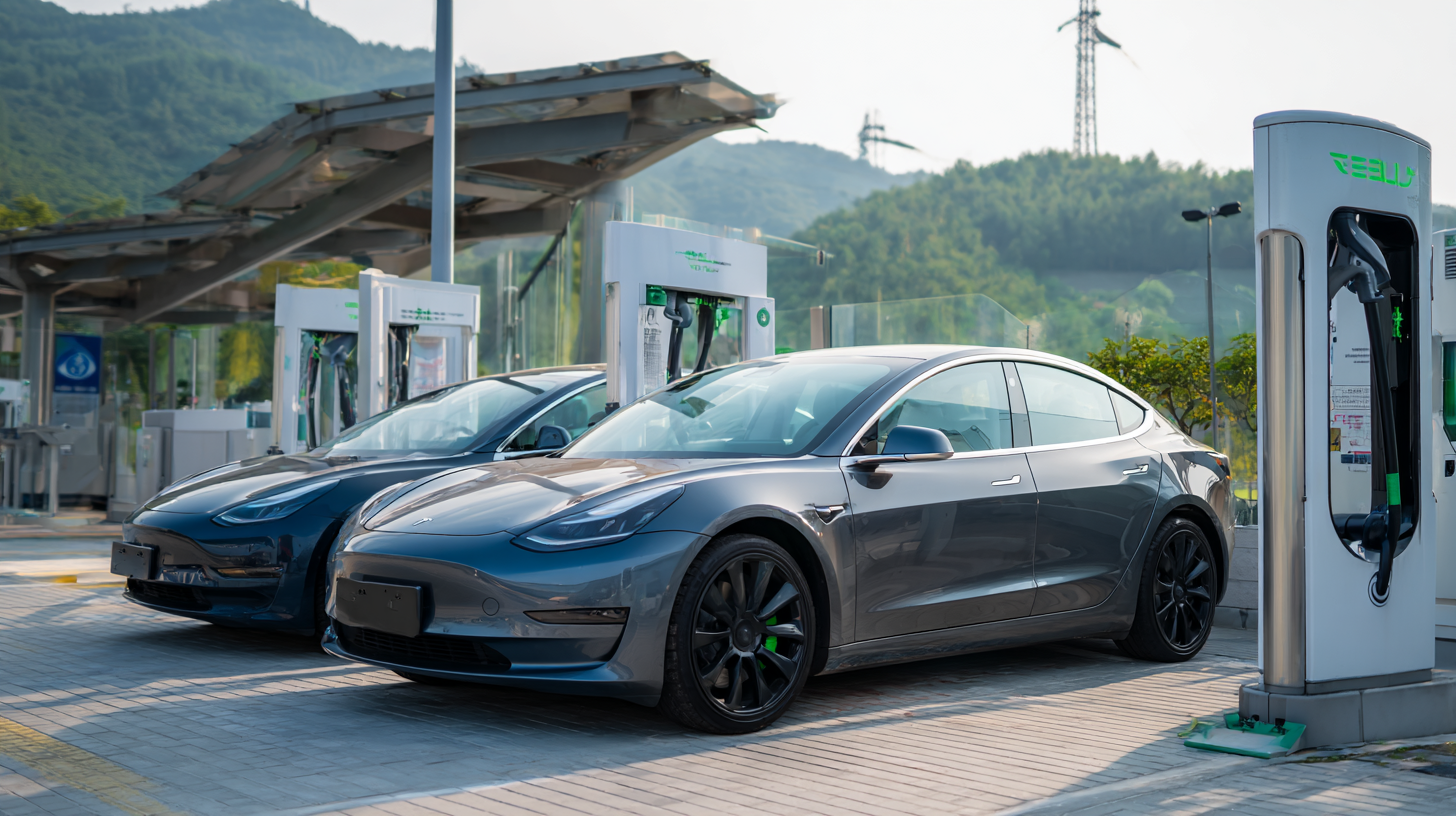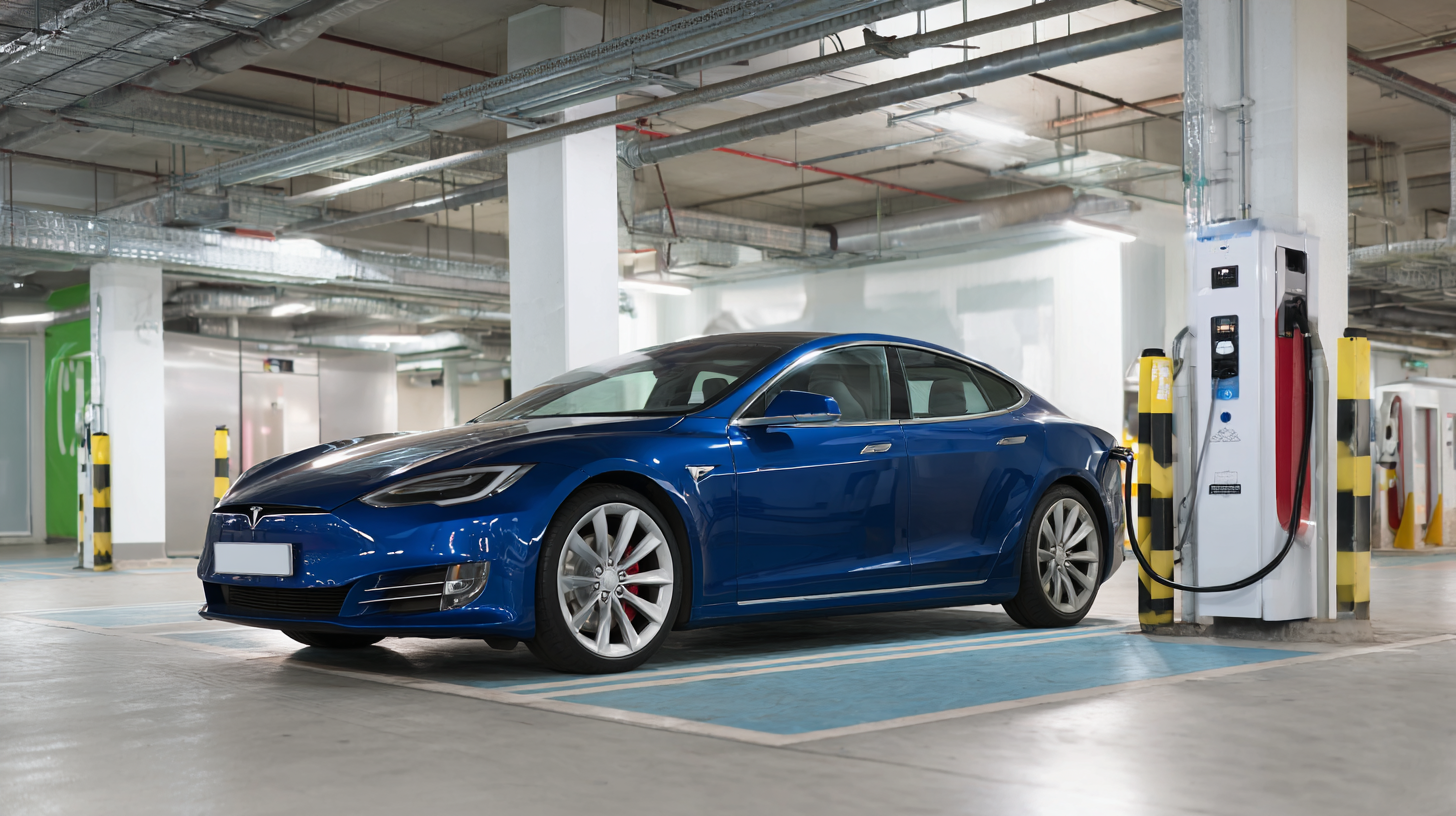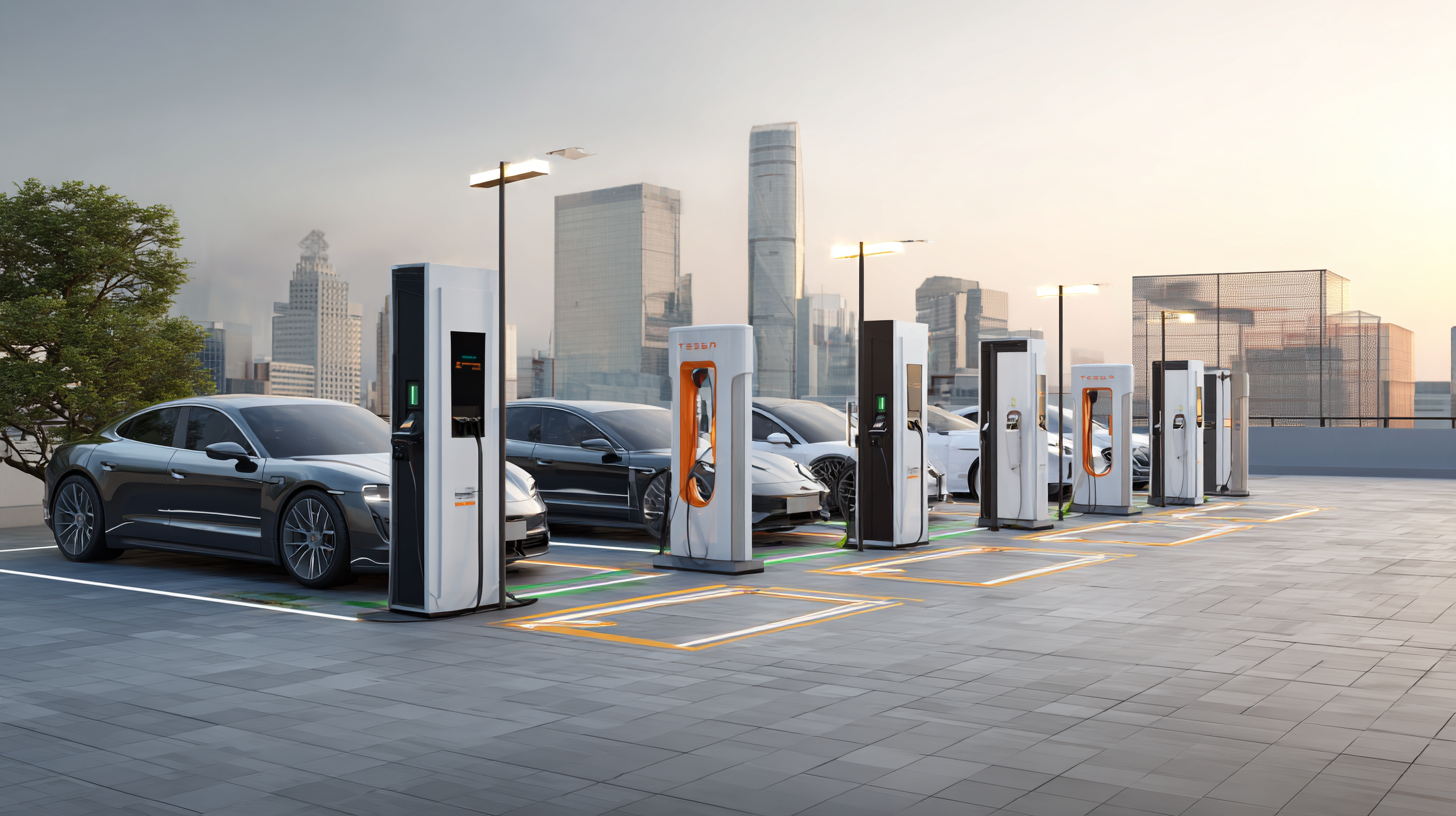As the electric vehicle (EV) market continues to surge, there is an increasing demand for high-quality EV charging equipment to support this growth. According to a report by Bloomberg New Energy Finance, global EV sales are expected to reach 10 million by 2025, propelling the total number of electric vehicles on the road to over 30 million. This soaring figure highlights the crucial need for a robust charging infrastructure, which is heavily reliant on sourcing the best EV charging equipment available. With diverse options ranging from fast chargers to home charging stations, businesses and municipalities must carefully evaluate their choices to ensure reliability, efficiency, and compatibility. This ultimate checklist aims to provide clear guidelines and considerations for sourcing the most effective EV charging solutions globally, equipping stakeholders to meet the ever-evolving demands of the electric vehicle ecosystem.

When sourcing EV charging equipment from global manufacturers, several key considerations can significantly influence your decision. Firstly, it's essential to evaluate the compatibility of the charging equipment with multiple EV brands and models. Ensure that the product meets globally recognized standards, such as IEC 61851 and SAE J1772, to facilitate ease of use for a wide range of electric vehicles. Moreover, consider the charging speed that the equipment provides. Fast chargers are particularly important in urban areas where downtime needs to be minimized, making it critical to assess the output power before making a purchase.

Additionally, the manufacturer's reputation and after-sales support should weigh heavily in your selection process. Investigate potential suppliers by looking at customer reviews, industry certifications, and their track record in the market. Strong customer service can help resolve troubleshooting issues efficiently, which is crucial for maintaining charging infrastructure. Lastly, sustainability should be at the forefront of your decision-making. Opt for manufacturers that prioritize eco-friendly production processes and use recyclable materials in their equipment. This not only aligns with the values of many EV users but also promotes a greener future for the electric vehicle industry.
When sourcing EV charging equipment, one of the key considerations is the quality standards of the products, particularly when it comes from manufacturing powerhouses like China. According to a report by Allied Market Research, the global electric vehicle charging market is projected to reach $39.2 billion by 2030, highlighting the increasing demand for reliable and efficient charging solutions. Chinese manufacturers hold a significant share of this market, making it essential to evaluate their products against international quality standards.
Tip: Always check for compliance with international certifications such as IEC 61851 and ISO 9001, which indicate that the chargers meet stringent safety and performance criteria. Additionally, research any potential lithium-ion battery issues, as reported by the U.S. Department of Energy, which emphasizes the importance of battery management systems in ensuring longevity and safety.
There’s also a growing focus on sustainability, with manufacturers now prioritizing eco-friendly practices in their production processes. A recent study from the International Energy Agency suggests that sustainable charging solutions can reduce overall carbon emissions significantly.
Tip: When selecting EV chargers, look for companies that publish their environmental impact assessments and use sustainable materials in their manufacturing, as this not only supports global efforts towards sustainability but also enhances the brand's reputation in a competitive marketplace.

When assessing the landscape of EV charging solutions, a comparative analysis between global offerings and Chinese innovations reveals intriguing insights. On a global scale, manufacturers prioritize advanced technologies, user-friendly interfaces, and interoperability standards that cater to varied market demands. These solutions often come with robust customer support and sustainable practices in manufacturing, further establishing their worth in the competitive realm of electric vehicle charging infrastructure.
In contrast, Chinese EV charging solutions have gained attention for their rapid deployment and cost-effectiveness. With significant government support and vast production capabilities, Chinese companies are able to offer charging equipment at competitive prices without compromising too heavily on quality. However, concerns around interoperability and long-term reliability persist, especially in comparison to established global brands. This divergence highlights the need for potential customers to carefully evaluate their specific needs, balancing factors like price, efficiency, and technological compatibility before sourcing the best EV charging equipment tailored to their unique market environment.
| Feature | Global EV Charging Solutions | Chinese EV Charging Solutions |
|---|---|---|
| Charging Speed | Fast (up to 350 kW) | Ultra-Fast (up to 600 kW) |
| Compatibility | Universal (CCS, CHAdeMO, Type 2) | Predominantly CCS and GB/T |
| Installation Cost | High ($10,000 - $20,000) | Moderate ($5,000 - $15,000) |
| After-Sales Support | Excellent | Varies by region |
| Network Integration | Seamless | Limited in some areas |
| Environmental Standards | High (ISO Certified) | Moderate |
| Market Response Time | Quick | Rapid |
| Warranty Period | 3-5 years | 2-4 years |
When sourcing electric vehicle (EV) charging equipment globally, understanding compliance and certifications is crucial. Different regions have varying regulations and standards that govern the manufacturing and installation of EV charging stations. These regulations ensure safety, reliability, and interoperability of charging systems. For instance, in the European Union, compliance with the IEC 61851 standard is essential, while in North America, adherence to UL certification is often required. Familiarizing yourself with these requirements can significantly streamline the procurement process and reduce potential liabilities.
In addition to regional standards, more specialized certifications should also be taken into consideration. For instance, some organizations offer certifications that focus on environmental sustainability, energy efficiency, and grid compatibility. Products that meet such certifications are not only more appealing to eco-conscious consumers but may also qualify for government incentives. By prioritizing compliance and engaging with recognized certification bodies, businesses can ensure their EV charging solutions meet global standards and align with the rapidly evolving market demands.
When sourcing electric vehicle (EV) charging equipment, it's crucial to assess not only the initial costs but also the long-term value it brings. According to a report from the
International Energy Agency (IEA), global EV stock surged to over 10 million units in 2020, necessitating robust
charging infrastructure to support this growth. Investing in high-quality, cost-effective charging equipment is essential for both operators and consumers.
Premium charging stations often provide faster charging capabilities and enhanced durability, ultimately leading to reduced maintenance costs over time.
Moreover, a study by Bloomberg New Energy Finance (BNEF) highlights that the total cost of ownership for EV drivers continues to decline, with EVs projected to reach price parity with traditional vehicles by the mid-2020s.
Incorporating advanced technology in charging stations, such as smart grids and renewable energy integration, can significantly enhance efficiency.
This not only improves user experience but also maximizes the usage rates of charging equipment, thereby increasing revenue potential for businesses.
By carefully analyzing the cost-effectiveness and long-term value of EV charging equipment, stakeholders can make informed decisions that align with the ongoing transition to sustainable transportation.
